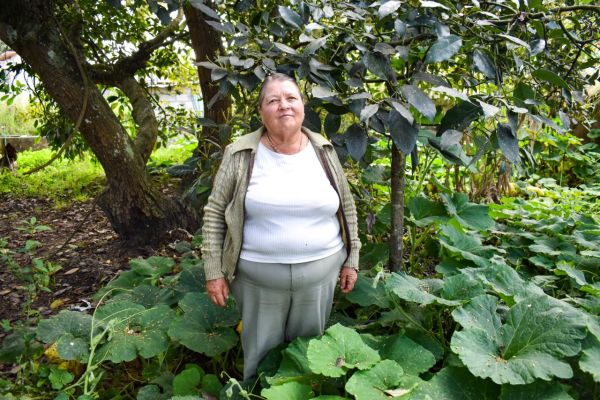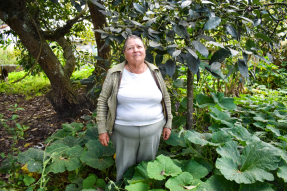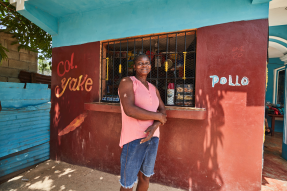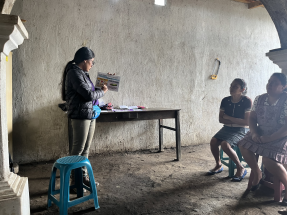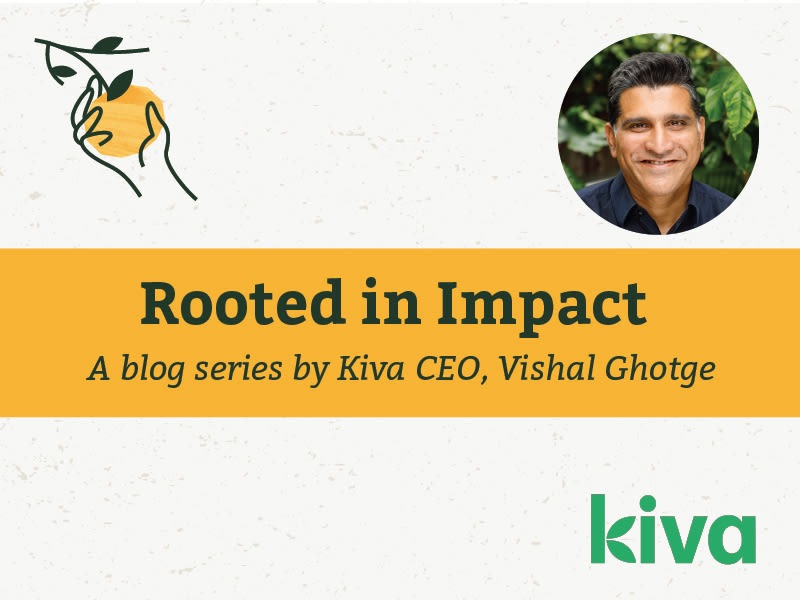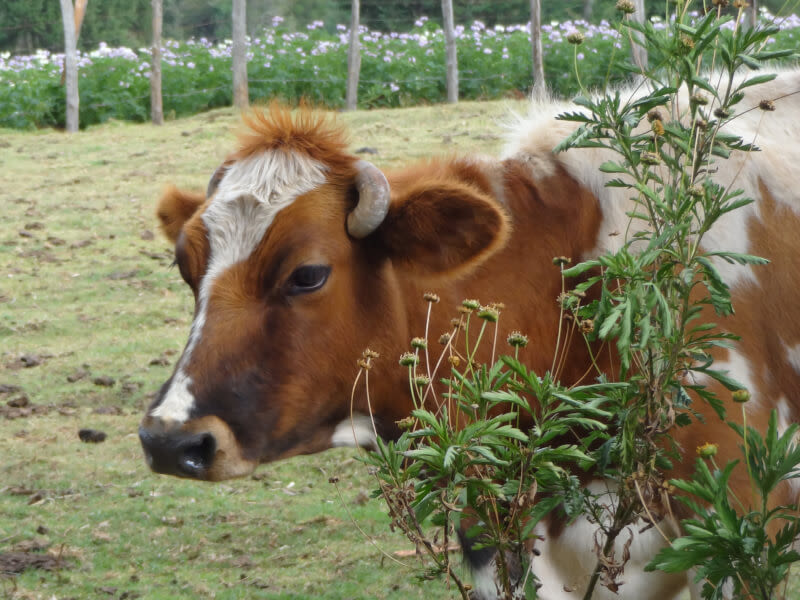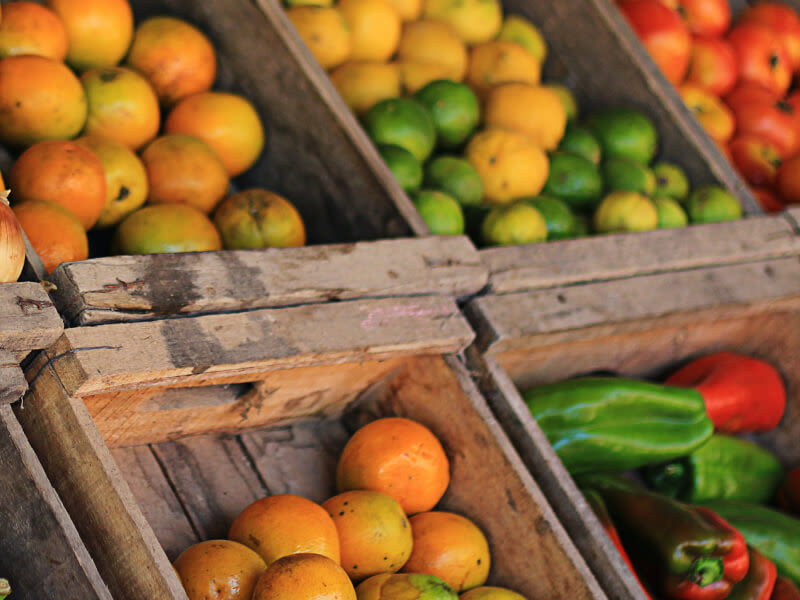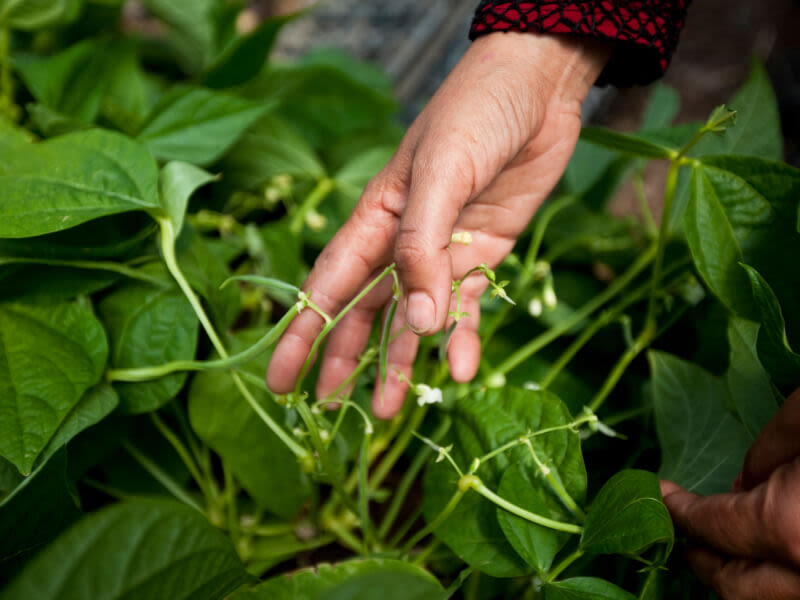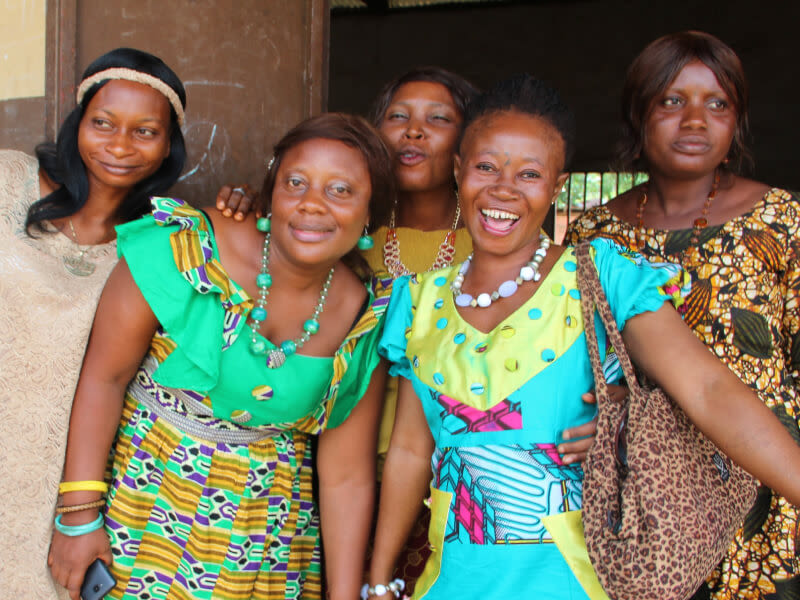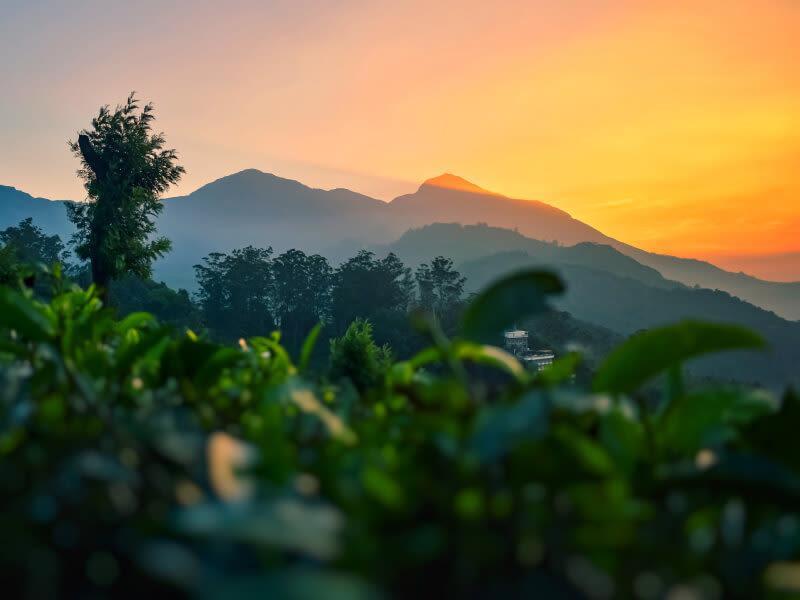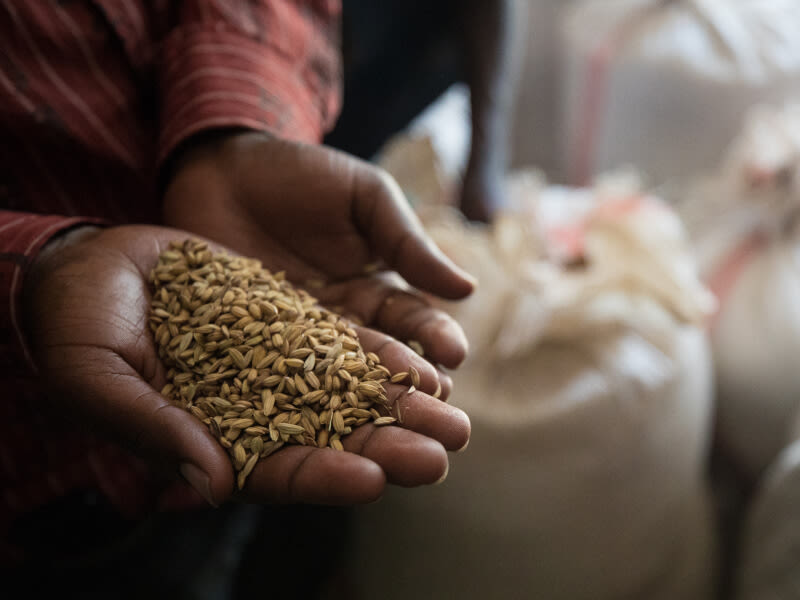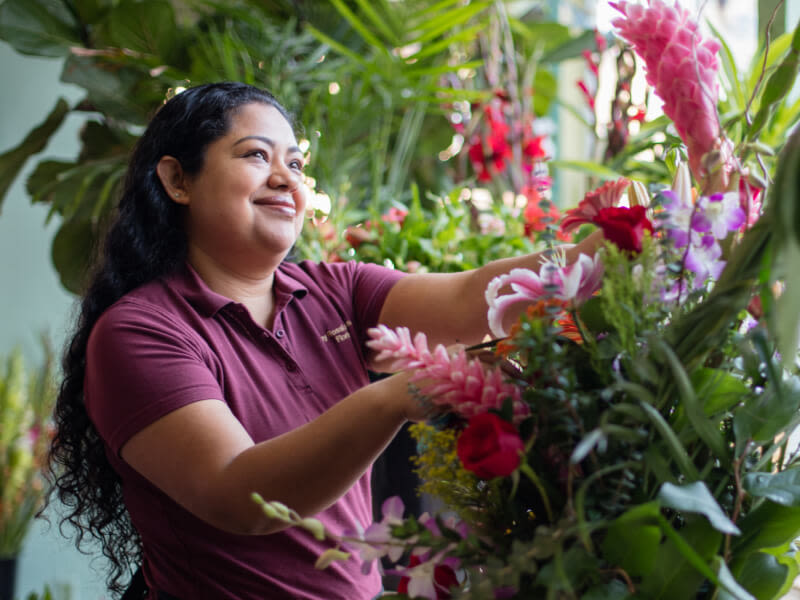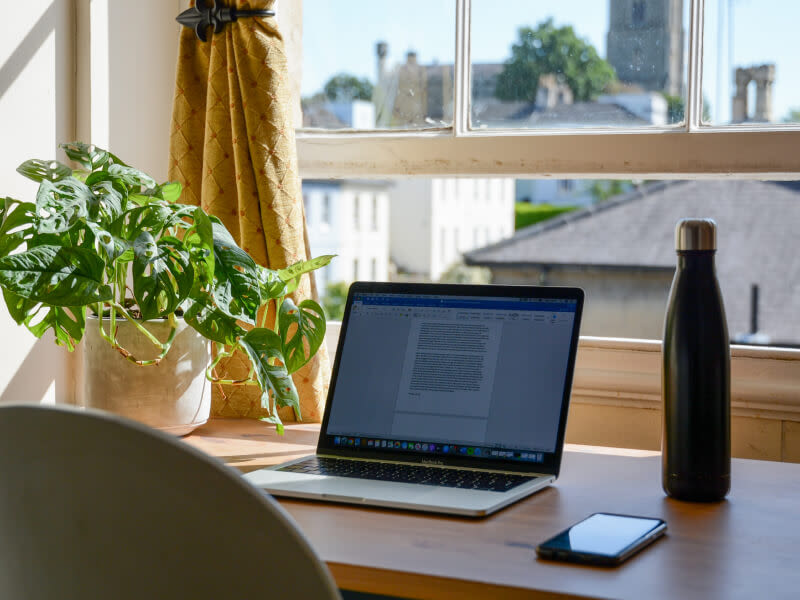There’s no doubt that avocados are having a global moment. The creamy green fruit with the leathery skin has been enjoying the spotlight for some time now, featured on fancy brunch menus and recommended for its health benefits.
For Rosa, who lives in the small town of Bellavista de San Antonio in northern Ecuador, avocados are more than a versatile snack—they are a lifeline.
The 64 year-old grandmother brokers the buttery delicacies to meet her daily expenses, buying them in bulk and selling them wholesale to restaurants and at street markets. She also plants new avocado trees for future harvests, an endeavor recently helped by a Kiva loan.
“The loan I have requested has truly helped me a lot, I am very grateful.”
“The loan I have requested has truly helped me a lot, I am very grateful,” says the soft-spoken Rosa, who used some of the profits gained from increased sales to pay for medical treatment for her ailing health.
Demand for avocados—also known as “alligator pears” or “butter fruit”—has steadily increased in the past five years, with an estimated 8.1 million tons yielded in 2020 and the global market forecasted to hit more than US$20 billion by 2027. While the majority of the world’s avocados come from Mexico, Ecuador recently increased production to supply the U.S. and other countries.
Such commercial-scale agriculture may not have much benefit to Rosa, who remains a one-woman operation for her customers.
“They come to me, or I’ll go and set up on a sidewalk,” she says, describing her daily schedule."
"I tell those passing by about the avocados I am selling, and they purchase the ripe ones. Some I also sell wholesale—but I earn more selling the ripe ones."
However, the endeavor is becoming more difficult for the hard-working vendor, who concedes: “I can no longer carry the avocados myself. My daughter brings me there.”
One small loan for a one-woman business
Rosa has struggled financially since becoming a single mother when her three children were young, and though the courts awarded her support from her divorce from her ex-husband, the paltry sum wasn’t even enough to cover water and electricity bills.
“Sometimes I would not eat—I would drink water instead, and I would ask God to give me strength so that I could continue working and continue raising my children,” she laments of the sacrifices she made to make sure her family was fed, clothed, and educated.
“This is my story—lots of suffering.”
“I tell them that we women can fight for ourselves in life. We can overcome.”
Now that her kids are grown with children of their own, she acknowledges that she must still continue to bring in money in order to care for her own needs.
“I put the money that I earn towards the medication for my illnesses and also towards food. They help me, but I also need to work for myself.”
Rosa’s business—and her health—suffered further during the pandemic, when she couldn’t leave the house to buy or sell the avocados that generate her primary income.
“I also got a cough at one point, and I couldn’t do anything. I stayed at home and didn’t leave for anything,” she says.
“But I said to myself, I have to leave to work so that I can afford the medicine—the pills and tablets that I have to take daily.”
Her spirits were buoyed by a loan from Kiva Lending Partner CACMU, which helped her purchase fresh inventory and restart the sales cycle. A small smile rises from Rosa’s face when she describes the loan process and its reasonable terms.
“I felt happy when I found out they were going to give me the loan. I found out the interest rate was quite low, and for this I am thankful, and I am thankful that they trusted me.”
Make a loan to a single parent here
A mother’s strength
Rosa’s story is a familiar one throughout the world. Women and girls are more likely to live in poverty than men and boys, and the particular vulnerabilities of single mothers are often overlooked by policymakers.
Family members often fill in the gaps for these families. In Rosa’s case, support came from her own mother, who not only cared for the little ones and helped plant the saplings but also sacrificed part of her own small income to fund Rosa’s small avocado venture.
“The idea of having this business came from my mom. She gave me a hand, lending me the avocados, and from there I continued,” describes Rosa.
“She was poor, as well… She needed that money, and I always made sure I paid her. My mom supported me through everything.”
She has no qualms about giving whatever support she can to her own children, and while she may not be able to give them extra money herself, she encourages them to pursue the opportunities provided by Kiva and CACMU.
“I tell my children that they should request a loan so that they can build a house,” she says.
“Because that’s where the loans have the lowest interest rates and the least amount of hurdles—in other places, [the credit] is more expensive.”
The hard-working avocado seller also has advice for other single mothers who are struggling to support their families.
“There may not be a lot of food, but they must ensure that what their children receive is enough,” she counsels.
“I tell them that we women can fight for ourselves in life. We can overcome.”
You can support women and single parents with a Kiva loan
For $25—about the cost of an avocado toast brunch with a coffee—you can help a woman or a single parent like Rosa. Make a loan on Kiva today.

